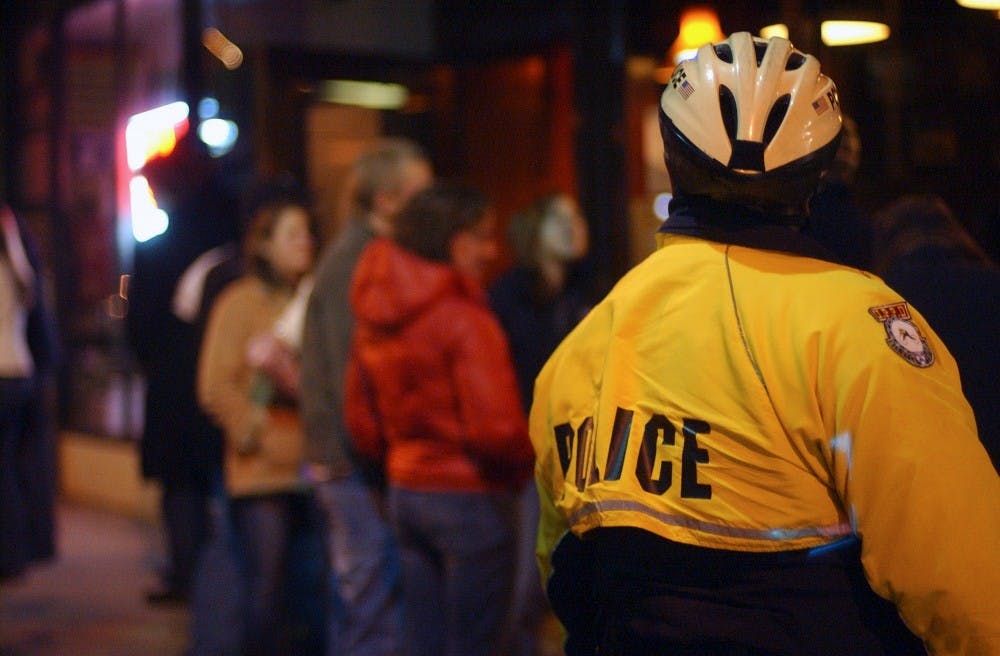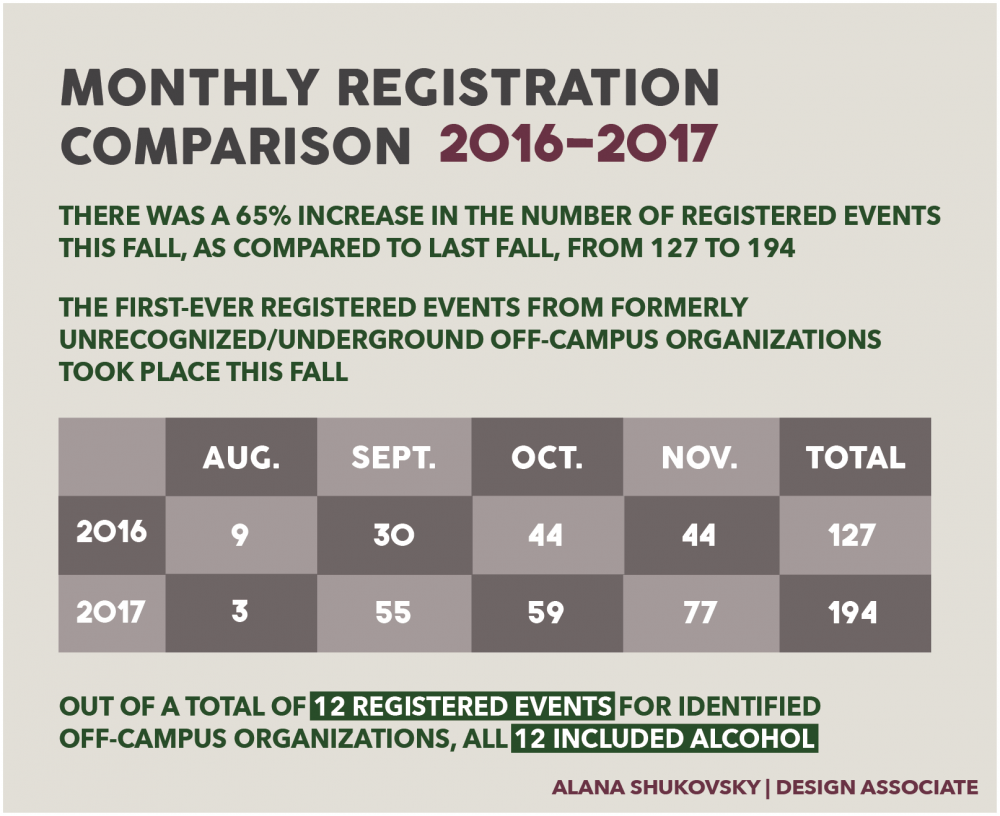
After a semester of student backlash to Penn's new policies governing social events, administrators and students say they are getting used to the campus regulations. Data from the University also suggest groups largely have been following the guidelines.
These policies, which are based on recommendations set forth last semester by the Task Force for a Safe and Responsible Campus Community, require both on-campus and off-campus groups to register all social events with the University or risk having the events shut down by Penn Police. The regulations were rolled out a year after students protested rape culture at Penn with flyers that exposed a sexually suggestive email from off-campus group OZ.
Registration involves hiring University-sanctioned bartenders and security guards, which together cost $90 per hour, and the introduction of event observers patrolling late-night events. These controversial policies sparked student criticism on what many deemed to be an uptick in the cost of events and policies that "[encroach] on student liberties."
But despite months of student criticism, data shows that many groups have complied with Penn's new social policies. Though there were only three registered events in August, the number of registered events increased each month after Penn Police continued to shut down unregistered events.

There were 55 registered events in September, 59 in October, and 77 in November, according to data from Alcohol and Other Drug Program Initiatives. That makes for a total of 194 registered events for the first four months of school, up 53 percent from last year’s 127.
Vice Provost of University Life Valarie Swain-Cade McCoullum said 100 more groups have also identified with the Office of Student Affairs, bringing its list of registered organizations from 400 to 500. Four of these groups were what used to be known as “unidentified, off-campus groups” such as THEOS, which functions as a fraternity.
Cade said THEOS has been cooperative in registering their events and that she has enjoyed getting to know its members. She even removed text on the VPUL website that discourages students from joining “unidentified, off-campus groups."
“We don’t have ‘on-campus’ and ‘off-campus’ anymore, which I like,” she said. “Everybody should have access to the same resources for prevention and wellness."
College senior Cami Potter, who is a writer for 34th Street and wrote a petition against the University's regulations that reached over 2,500 signatures in September, said that after a semester, Penn's policies have become more understandable to her and other students.
“I have seen the registered events in place and functioning well,” she said, “so I do think it takes both sides in order to make it work.”
Potter added that although the policies seemed extreme to her in the beginning of the semester, she thinks that she can now better understand the University's perspective after seeing that many other colleges are taking similar actions.
In this semester alone, five large universities have entirely suspended Greek life. They are: the University of Michigan, Ohio State, Texas State, Louisiana State, and Penn State universities.
College sophomore Blaze Bernstein, who wrote an op-ed in October describing the University's policies as "alienating and incompetent," said he agreed with Potter.
Although Bernstein said there was little transparency when the policies were first instituted, the FAQ section on VPUL's website about event registration has helped him better understand the administration's intentions to improve the campus climate.
However, Bernstein said he is still skeptical as to whether administrative policies can adequately address the deep-seated problems that the Task Force was designed to address such as sexual harassment and violence, substance abuse, and other student conduct code violations.
He said he also maintains that the University's regulations have limited social life, as fraternities function as a community for many students. He added that Penn's social environment is changing as students work to reconfigure their social lives.
Potter agreed, noting that campus social life "does seem a little sadder."
“Overall, it does feel a little different and I’m not sure if that’s the result of the new rules or if that’s the result of a cultural thing going on at all schools,” she said.
Cade acknowledged that the new social policies could have been communicated more clearly in the beginning of the semester.
“What I would have done differently, over the summer and the first part of this academic year, is talk just as much and give just as much information about the violence prevention and sexual violence work that we were doing as much as I did about events and activities,” she said.
Potter also said she has heard fewer stories about groups of friends or philanthropy events getting shut down.
“I do think now we’re at more of a middle ground that we didn’t possibly have in the past,” she said. “I hope that it doesn’t have to get an extreme again."
The Daily Pennsylvanian is an independent, student-run newspaper. Please consider making a donation to support the coverage that shapes the University. Your generosity ensures a future of strong journalism at Penn.
Donate



